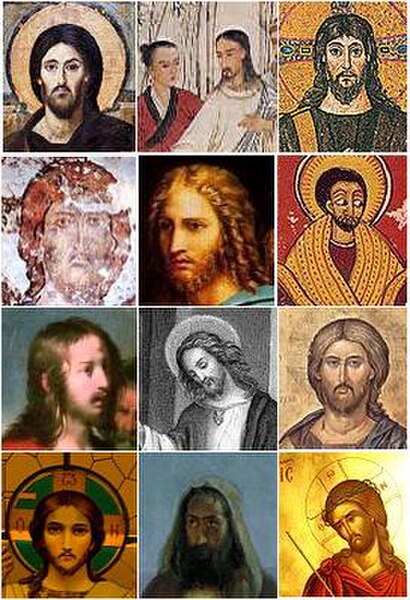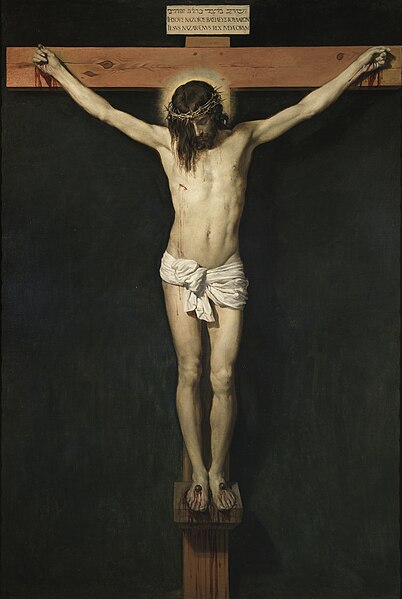The Athanasian Creed — also called the Pseudo-Athanasian Creed or Quicunque Vult, which is both its Latin name and its opening words, meaning "Whosoever wishes" — is a Christian statement of belief focused on Trinitarian doctrine and Christology. Used by Christian churches since the early sixth century, it was the first creed to explicitly state the equality of the three hypostases of the Trinity. It differs from the Nicene-Constantinopolitan Creed and the Apostles' Creed in that it includes anathemas condemning those who disagree with its statements.
Athanasius of Alexandria was traditionally thought to be the author of the Athanasian Creed, and gives his name to its common title.
Detail of a manuscript illustration depicting a knight carrying the "Shield of the Trinity".
Christianity is an Abrahamic monotheistic religion based on the life and teachings of Jesus Christ. It is the world's largest and most widespread religion with roughly 2.4 billion followers, comprising around 31.2% of the world population. Its adherents, known as Christians, are estimated to make up a majority of the population in 157 countries and territories. Christians believe that Jesus Christ is the Son of God, whose coming as the Messiah was prophesied in the Hebrew Bible and chronicled in the New Testament.
The Church of the Holy Sepulchre in the Christian Quarter of the Old City of Jerusalem, the holiest Christian site
An Eastern Christian icon depicting Emperor Constantine and the Fathers of the First Council of Nicaea (325) as holding the Niceno–Constantinopolitan Creed of 381
Various depictions of Jesus
Crucifixion, representing the death of Jesus on the Cross, painting by Diego Velázquez, c. 1632





